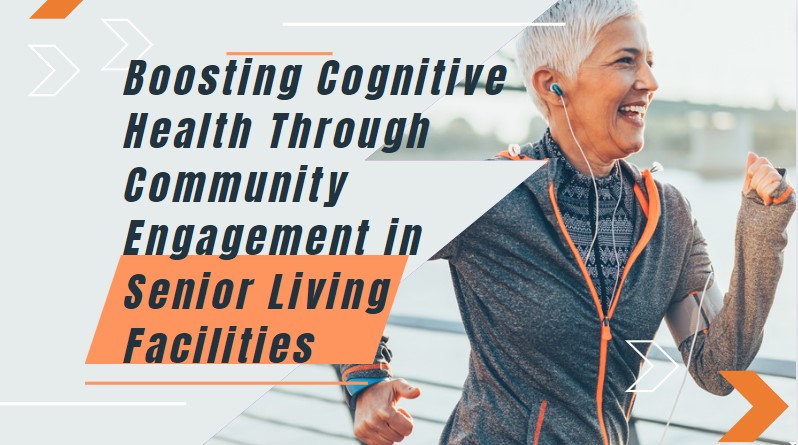Key Takeaways
- Community engagement activities can significantly enhance cognitive health in seniors.
- Various social and recreational activities can reduce the risk of cognitive decline.
- Intergenerational programs offer unique benefits to both seniors and younger generations.
- Customized health plans and regular social interactions can lead to longer, healthier lives.
Table of Contents
- Importance of Community Engagement
- Types of Activities That Enhance Cognitive Health
- Benefits of Intergenerational Programs
- Role of Customized Health Plans
- Case Studies
- Practical Tips for Implementing Engagement Activities
Importance of Community Engagement
Community engagement is crucial in maintaining cognitive health among seniors. Engaging in various social activities provides a sense of purpose and belonging, essential for mental well-being. Moreover, active participation in a community can help reduce feelings of isolation and loneliness, two significant factors that contribute to cognitive decline. Research indicates that social activities and community involvement can stave off cognitive decline and improve overall mental well-being. Facilities that emphasize the importance of social interactions, such as various senior living communities, strive to enhance the quality of life for their residents. To learn more about such communities, you can visit their site.
According to a study published by the National Institutes of Health, frequent social interactions can slow cognitive decline in elderly individuals. This research underscores that individuals who frequently participate in social activities typically exhibit superior cognitive functions in contrast to those who don’t engage as often.
Types of Activities That Enhance Cognitive Health
Several types of activities have been shown to enhance cognitive health in seniors. These activities not only provide mental stimulation but also promote physical and emotional well-being. Some of the most effective activities include:
- Social Gatherings: Events like coffee mornings, book clubs, and group discussions encourage social interaction and mental stimulation. These gatherings offer a platform for seniors to share experiences, engage in stimulating conversations, and build meaningful relationships.
- Exercise Classes: Physical activities such as yoga, tai chi, and other group exercise classes improve physical health and boost brain function. Regular physical exercise has been linked to improved cognitive functions, including better memory and quicker information processing.
- Educational Workshops: Lifelong learning opportunities can keep minds sharp and engaged. Workshops on various topics, such as art, history, technology, and even cooking, can provide mental challenges that are crucial for maintaining cognitive health. These workshops also offer a sense of achievement and purpose, which is essential for emotional well-being.
Benefits of Intergenerational Programs
Intergenerational programs involve interaction between different age groups, generally seniors and younger individuals. These programs can be mutually beneficial, providing seniors with a sense of purpose and younger generations with valuable life lessons. Seniors can share their vast experiences and wisdom, while younger individuals can offer new perspectives and knowledge, particularly in areas like technology. A report from the Brookings Institution highlights the positive outcomes of such initiatives, including increased social cohesion and improved mental health in seniors. These programs foster a sense of community and belonging, which is crucial for emotional and mental well-being. They also help to bridge the generational gap, creating a more inclusive and understanding society.
Role of Customized Health Plans
Tailored health plans consider the distinct requirements, preferences, and health circumstances of every individual, guaranteeing that they receive the most suitable care and assistance. Such plans may encompass dietary guidance, mental health aid, and physical therapy, all of which contribute to overall well-being.
Case Studies
Several senior living facilities have successfully implemented community engagement programs with positive results. For example, a facility in New York implemented a weekly dance class that improved physical health and led to noticeable cognitive benefits among participants. Another example is a senior community center in California that introduced a gardening club, which provided residents with a sense of purpose and accomplishment. These case studies showcase how community involvement initiatives can significantly influence the cognitive well-being and general welfare of older adults. They emphasize the significance of providing a diverse range of activities tailored to various interests and capabilities, guaranteeing that every resident can discover something they find enjoyable and advantageous.
Practical Tips for Implementing Engagement Activities
Implementing engagement activities can seem daunting, but it can be highly rewarding with the right approach. Here are some practical tips:
- Start Small: Begin with regular social gatherings and gradually introduce more activities. Starting small allows you to assess the interests and preferences of residents and adjust the activities accordingly. It also helps to build a sense of anticipation and excitement for upcoming activities.
- Resident Involvement: Encourage residents to participate in planning and organizing activities. This not only empowers them but also ensures that the activities are aligned with their interests and preferences. Residents who are involved in the planning process are more likely to participate and enjoy the activities.
- Community Partnerships: Partner with local community groups to introduce a variety of programs. Collaborating with external organizations can bring new and diverse activities to your facility, enriching the experience for residents. It also helps to build connections between the facility and the broader community.
By adhering to these suggestions, senior living facilities can establish a lively and captivating atmosphere that fosters cognitive health and overall well-being. The crucial aspect lies in providing a diverse array of activities tailored to varying interests and capabilities, guaranteeing that every resident discovers something they find enjoyable and beneficial. Keep in mind that the objective is to cultivate a feeling of community, belonging, and purpose, all of which are fundamental for sustaining cognitive health and enriching the quality of life for seniors.











